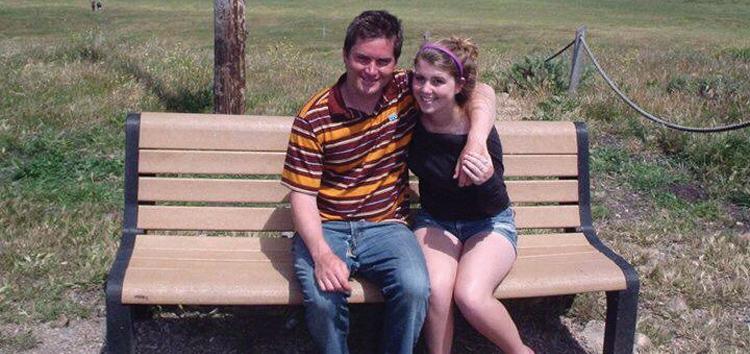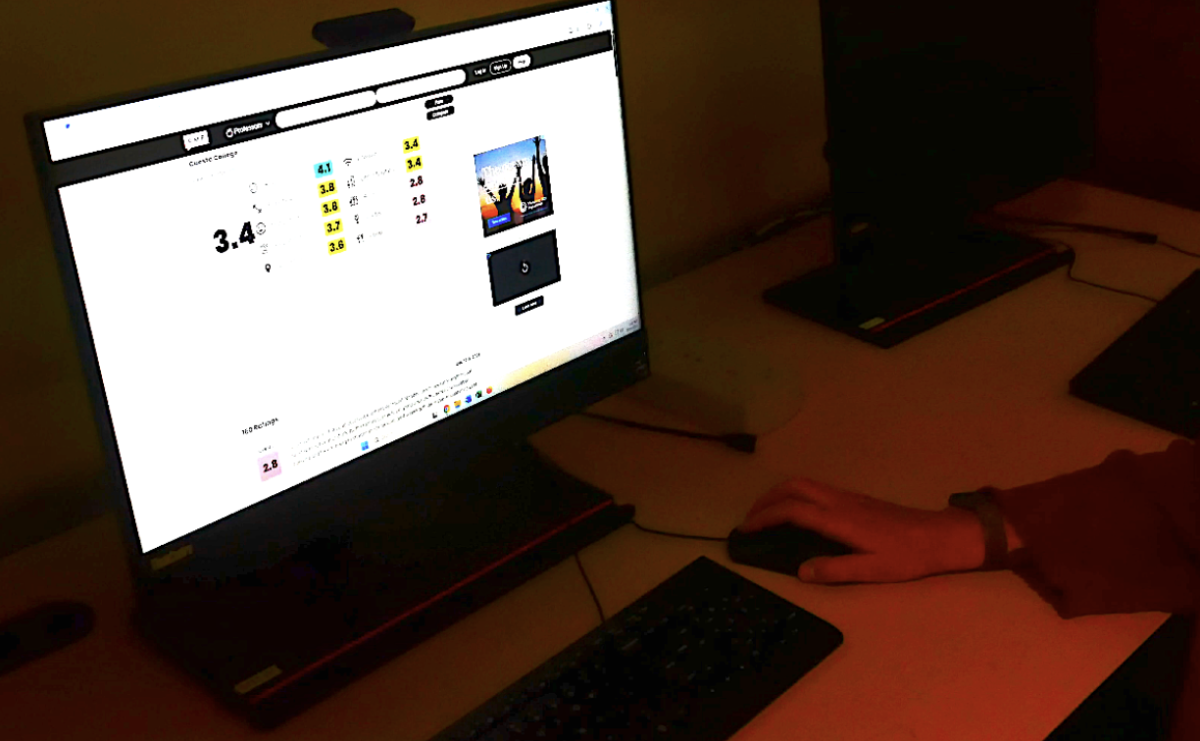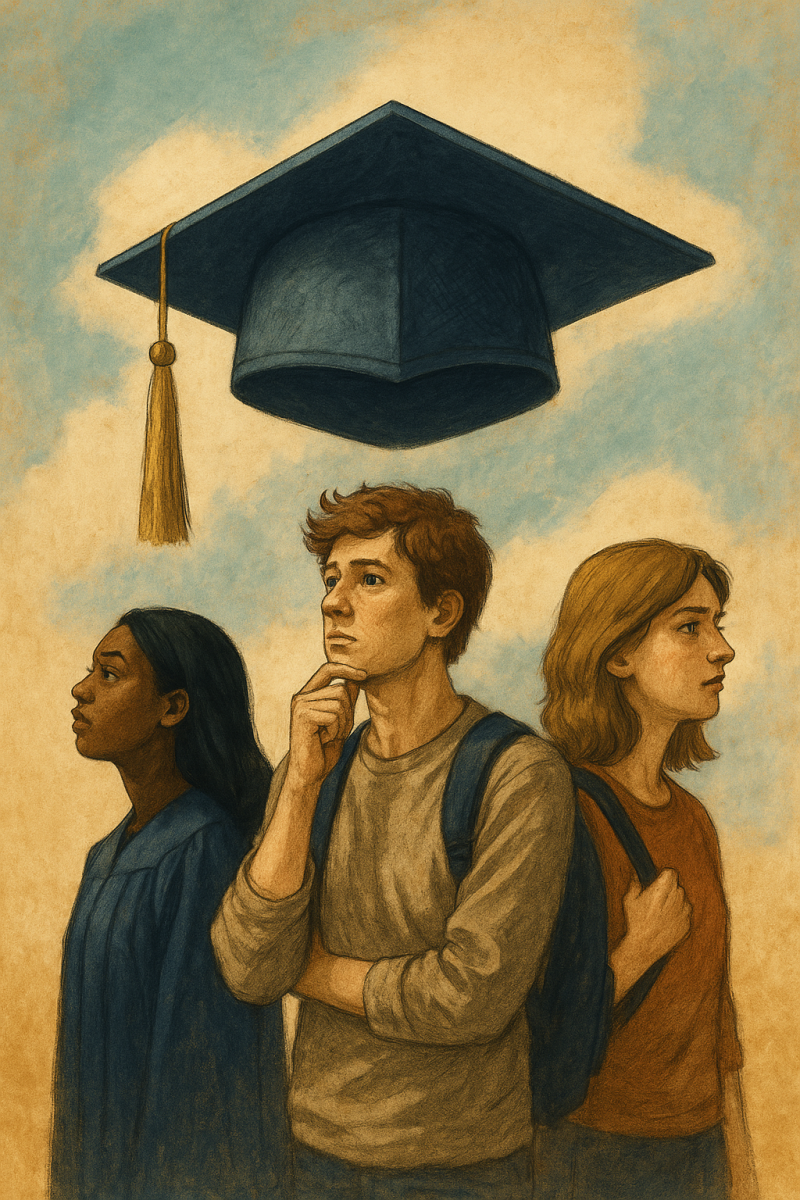Blake McKellar, who struggles with a serious form of mental illness, is at risk of losing his health insurance and medication if Obamacare is discontinued.
Photo courtesy of Savanah Hatcher / Cuesta student
Also from the Cuestonian: Students weigh in on the potential death of Obamacare
By Lindsay Darbyshire
Features Editor
Savanah Hatcher is afraid to let her brother know where she lives.
Hatcher, who has been attending Cuesta since 2014, said that her brother suffers from schizophrenia and substance abuse problems.
Due to his mental illness, Blake McKellar has the tendency to act out and get into trouble. Because of his often warped sense of reality, there is very little chance that the 32 year-old will be able to live on his own.
“[He] talks about aliens and being in the military and being a secret agent,†Hatcher said. “He does things and then he’s unaware of it until he snaps out of it.â€
“And he talks about how he hears voices,†said Hatcher, who describes how McKellar said he had learned other languages in jail through what he says to be his telepathic ability.
But when he’s on his medication, he appears to be better — even leaving his sister coherent and collected messages on her voicemail.
However, McKellar is one of an estimated 18 million people nationwide who will be left uninsured during the first year after the discontinuation of Obamacare, with another 32 million by 2026, according to a study highlighted by CNN. Of those, around 30 percent have mental health issues, according to USA Today.
McKellar is currently covered by Obamacare, which runs the risk of being repealed, as promised by President Trump. If Obamacare were to be discontinued, McKellar would have no way of paying for his medication, a vital part of his safety and recovery.
McKellar is just one in the 43.8 million, or 18.5 percent of people in America who struggle with a mental illness in a given year, according to the National Alliance on Mental Illness. In addition, half of those who experience a substance abuse disorder also have a co-occurring mental illness.
“Mental illness affects one in five Americans,†said the National Alliance on Mental Illness in a press release. “Stripping Medicaid funding would result in millions of Americans losing access to mental health and substance use services.  Stepping back from insurance protections in the ACA would also be very harmful to people with mental illness.â€
“[When McKellar is unmedicated] he starts acting inappropriately, he sneaks off to the creek in San Luis to do drugs,†said Hatcher, who studies communications. “He just starts acting really weird around people. My brother is a wonderful person… he’s a very genuinely kind person, but when he’s not on his meds, he gets desperate. It just literally drives him crazy.â€
McKellar started displaying symptoms of schizophrenia back in 1997, but wasn’t officially diagnosed until 13 years later in 2010, according to Hatcher.
McKellar lives in a rehabilitation center in San Luis Obispo. Due to court order, he also must wear an ankle monitor to ensure he is where he is supposed to be. Because of the ankle monitor, McKellar can’t go into the the ocean, one of his favorite places, according to Hatcher. When he gets the monitor off, this is the first place McKellar will go enjoy.
“His first goal is to go straight into the ocean,†Hatcher said. “That’s where my brother thrives. That’s where my brother belongs.â€
McKellar also hopes to take some Cuesta classes in the future, Hatcher said. He is interested in marine biology and hopes to study about the ocean and the life inside it.
“I told him if he wanted to take it, I love it, too, so I would be more than willing to help him or go to the labs with him. He’s in it to learn. He used to love to learn and love school,†said Hatcher, who said McKellar also wants to be a good uncle to her nine month- old daughter.
Hatcher does her best to speak out about mental health and encourages others to do the same. She hopes that people who are struggling will utilize the resources they have to help themselves and get well.
“I think the more we get out there, the more we start talking about it… we’re doing [more] to help it [and] the less likely we are to see all these tragic events,†said Hatcher. “I’m hoping that people who have Obamacare can stay on Obamacare and utilize that insurance to give themselves help. And without it, I don’t know what’s going to happen.â€















